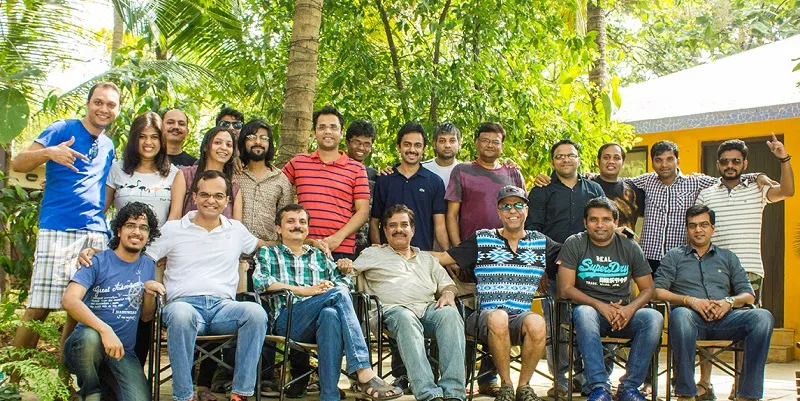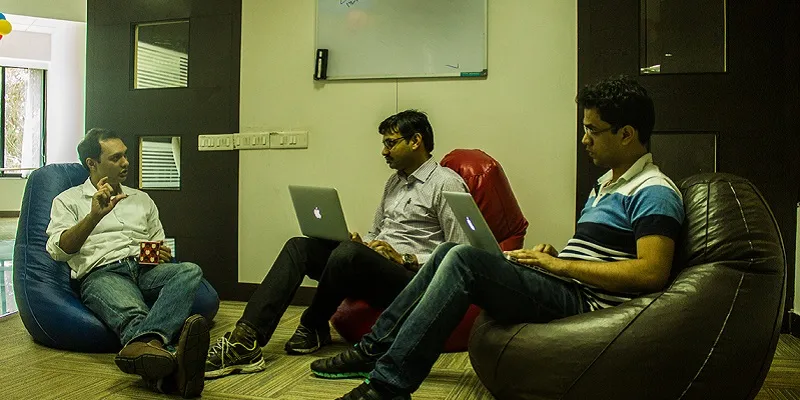Former Quikr employees make the process of buying insurance policy easy and quick
While popular advertisements today advise users to compare insurances and different policies before opting for one, many are yet to determine the difference between the policies and what actually suits their needs. Dhirendra Mayhavanshi, Co-founder of Turtlemint, saw that consumers were finding it difficult in buying and understanding the right type of insurance policy.
This worked as a primary motivator for Dhirendra and Anand Prabhudesai, both of whom previously worked at Quikr, to build Turtlemint. Prior to starting up, Dhirendra has worked in companies like ICICI Lombard and Quikr. Launched in the end of 2015 in Mumbai, Turtlemint is a personalised insurance platform that gives recommendations to different customers on the basis of different algorithms and data analytics. It also offers offline insurance assistance.

Licensing and the follow-up
After several rounds of iterations, the IIM graduates came up with the idea of Turtlemint.
We first applied for a license from the IRDA, post this we started interacting with consumers and insurance companies. We did our research to arrive at the right kind of product, and after that we thought of setting up a team,” says 37-year-old Dhirendra.
Since the team had the licenses and the processes in play, they were able to generate a cash flow from the offline assistance processes. This in turn helped them sustain a team and gave them the bandwidth to build the technology platform.
Turtlemint currently offers health and vehicle insurances, and will soon be offering life insurance as well. The team has integrated with over 15 insurers. Speaking of the consumer issues, Anand says,
In our research we found that when people come to buy an insurance online, they believe that they’re clueless and don’t know what they are doing. This mostly happens because there is a lack of transparency in the process or the policies as such are difficult to understand.

Simplifying the fine print
To ensure that people can understand the policies better, the team looked at all the fine-print of the policy and brought out the key details for better understanding. Anand adds that they have put the benefits of every policy in a way that is similar to a real-estate site that describes different amenities. Also several jargons and terms like low-claim bonus are explained on the platform.
While simplification was a solution to one side of the problem, the team now had to work on helping the customer make the right decision. Citing the example of health insurance, Anand says that most people have a doubt about the benefits, amount for the insurance, aspects covered, and whether the claims will be processed on time.
The team also found that most people have a particular doctor and hospital they like to go to. “It is important for the policy to offer cashless treatment at that hospital,” explains Anand.
Bringing a strong differentiator
To ensure all of this, the platform is built in such a way that it takes the customer through all the different goals while searching a policy, so that the consumer can decide based on his or her needs. It is basis these needs that polices are matched.
There has been a growing focus on the use of technology in better consumer interaction with financial services. Apart from startups like Rubique, Finomena, Kadki, i2iFunding, Faircent and CapitalFloat that are making lending easy, other startups now are also looking at making insurance easier.
Bigger players like PolicyBazaar come in direct competition with Turtlemint. There also is Paytm that has ventured into insurance policy, which already has SBI General Insurance, and Ronnie Screwvala backed Easy Policy.
Anand adds that while a lot of players focus on price comparison alone, Turtlemint follows a more holistic view and looks at 20 different parameters and then make a recommendation. The site currently collects a lot of data on policy, insurers and hospitals, vehicle and garage, and customers. Further, the data are stored in a secure manner and is interchanged with the insurance companies.
In February this year, Turtlemint had raised an investment round led by Nexus Venture Partners and Blume Ventures. With this round of funding, the team scaled its technology and onboarded insurers. The team has refused to share their revenue and growth details. “We are looking to improve operations and the process,” says Dhirendra.
Integrating technology and future
“The integration of technology is a time-consuming process, as it needs multiple sitting and different iterations,” says Anand.
As Turtlemint has a broking license, they get a commission from the insurance companies on policies that are purchased. There is no price differentiation for a consumer, he/she can pick the policy at the same rates from the insurer and from Turtlemint.

Anup Gupta, Managing Director of Nexus Venture Partners, says that both the founders have enough experience with leading online platforms and bring in the right exposure in the space.
In insurance, a large portion is researched online and later bought offline. There already is a large network of agents, but they don’t have access to technology and the benefits that come with that. The idea of Turtlemint is to offer consumers the transparency and sometimes even the comfort of an offline play,” says Anup.
Anup believes that as technology and internet gets more pervasive, finance will be the next big thing from India. While there are startups growing in the space, it is important follow all the regulatory frameworks.







